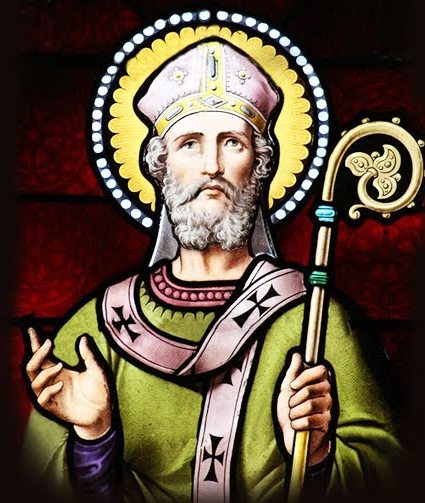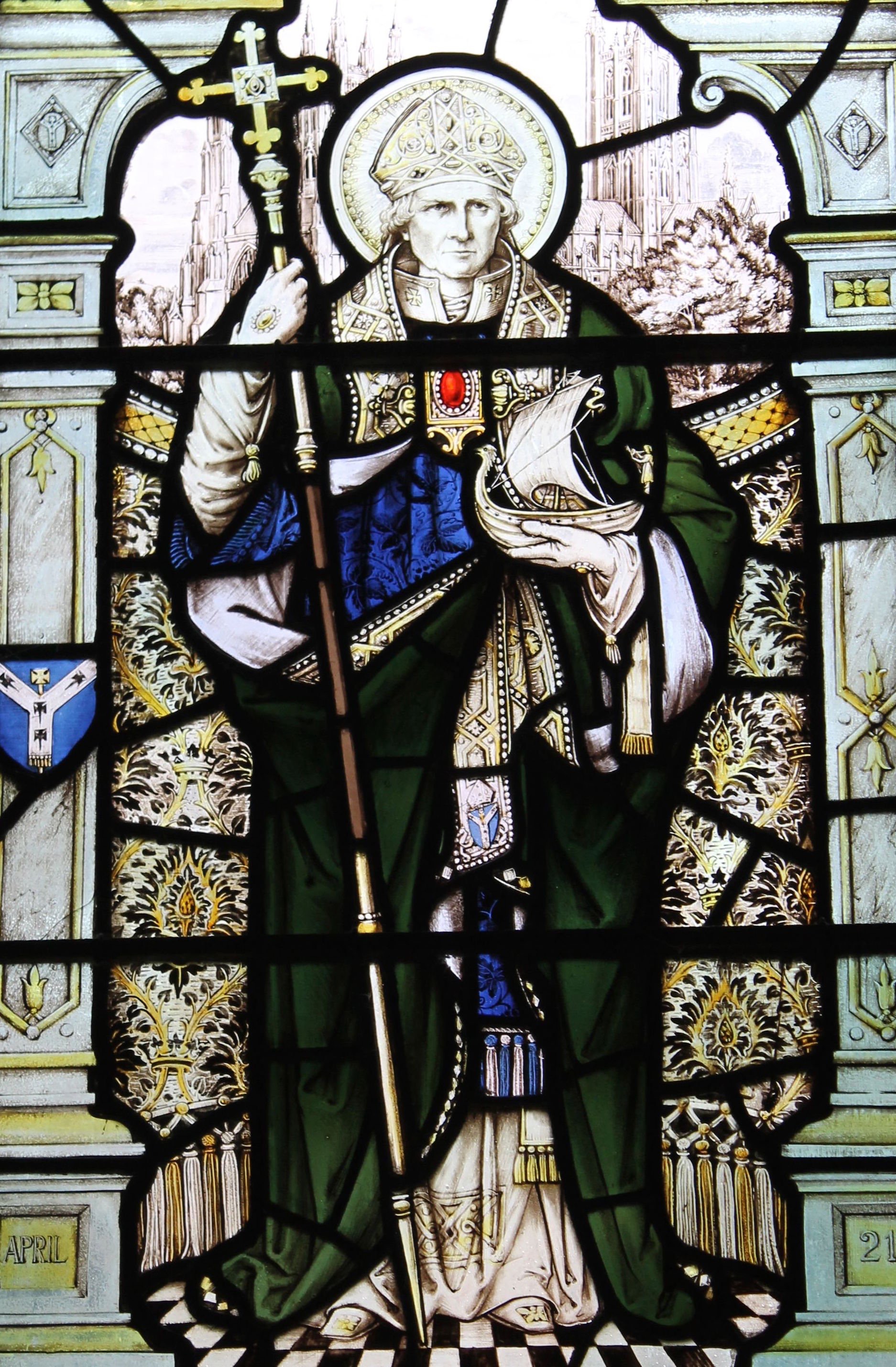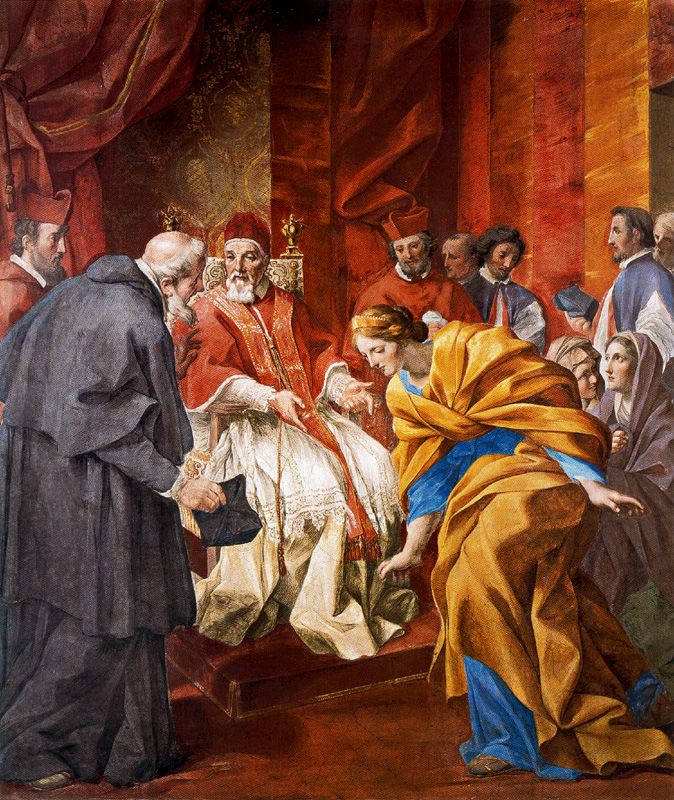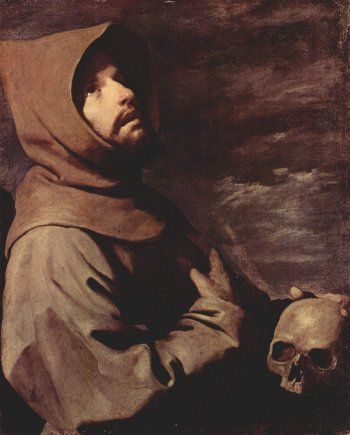
Anselm may, with some justice, be considered the first scholarly philosopher of Christian theology. In Anselm, one finds the special characteristics of scholastic theological thought: a recognition of the relationship of reason to revealed truth, and an attempt to elaborate a rational system of faith.
Anselm’s constant endeavor was to render the contents of the Christian consciousness clear to reason, and to develop the intelligible truths interwoven with the Christian belief. The necessary preliminary for this is the possession of the Christian consciousness.
“Neque enim quaero intelligere ut credam, sed credo ut intelligam.
Nam et hoc credo, quia, nisi credidero, non intelligam.”
(“Nor do I seek to understand that I may believe, but I believe that I may understand.
For this too I believe, that unless I first believe, I shall not understand.”)
Anselm also held that after the faith is held fast, the attempt must be made to demonstrate by reason the truth of what we believe. Indeed, it is wrong not to do so:
“Negligentiae mihi esse videtur, si, postquam confirmati sumus in fide, non studemus quod credimus, intelligere.”
(“I hold it to be a failure in duty if after we have become steadfast in our faith we do not strive to understand what we believe.”)
The groundwork of Anselm’s theory of knowledge is contained in his tract “De Veritate” (lesser known than his seminal work “Curs Deus Homo”), in which, from the consideration of truth as in knowledge, in willing, and in things, he rises to the affirmation of an absolute truth, in which all other truth participates.

This absolute truth is God Himself, Who is therefore the ultimate ground or principle both of things and of thought. The notion of God comes thus into the foreground of the system; before all things it is necessary that it should be made clear to reason, that God should be demonstrated to have real existence.
“Kindest, gentlest, most serene Lord,
Will you not make it up to me for not seeing
The blessed incorruption of your flesh,
For not having kissed the place of the wounds
Where the nails pierced,
For not having sprinkled with tears of joy
The scars that prove the truth of your body?
Alas, Lord, alas, my soul.”
-St Anselm
“Little man, rise up! Flee your preoccupations for a little while. Hide yourself for a time from your turbulent thoughts. Cast aside, now, your heavy responsibilities and put off your burdensome business. Make a little space free for God; and rest for a little time in him.
Enter the inner chamber of your mind; shut out all thoughts. Keep only thought of God, and thoughts that can aid you in seeking him. Close your door and seek him. Speak now, my whole heart! Speak now to God, saying, I seek your face; your face, Lord, will I seek.
And come you now, O Lord my God, teach my heart where and how it may seek you, where and how it may find you.
Lord, if you are not here, where shall I seek you when you are absent? But if you are everywhere, why do I not see you present? Truly you dwell in unapproachable light. But where is unapproachable light, or how shall I come to it? Or who shall lead me to that light and into it, that I may see you in it? Again, by what signs, under what form, shall I seek you? I have never seen you, O Lord, my God; I do not know your face.
What, O most high Lord, shall this man do, an exile far from you? What shall your servant do, anxious in his love of you, and cast out far from your presence? He is breathless with desire to see you, and your face is too far from him. He longs to come to you, and your dwelling-place is inaccessible. He is eager to find you, but does not know where. He desires to seek you, and does not know your face.
Lord, you are my God, and you are my Lord, and never have I seen you. You have made me and renewed me, you have given me all the good things that I have, and I have not yet met you. I was created to see you, and I have not yet done the thing for which I was made.
And as for you, Lord, how long? How long, O Lord, do you forget us; how long do you turn your face from us? When will you look upon us, and hear us? When will you enlighten our eyes, and show us your face? When will you restore yourself to us?
Look upon us, Lord; hear us, enlighten us, reveal yourself to us. Restore yourself to us, that it may be well with us, yourself, without whom it is so ill with us. Pity our toilings and strivings toward you since we can do nothing without you.
Teach me to seek you, and reveal yourself to me when I seek you, for I cannot seek you unless you teach me, nor find you unless you reveal yourself. Let me seek you in longing, let me long for you in seeking; let me find you by loving you and love you in the act of finding you.”
-St Anselm, Proslogion

–St. Anselm meets the Countess Matilda—the defender of Pope St. Gregory VII—in the presence of Pope Urban II, by Giovanni Francesco Romanelli, (1610-1662).
I am desperate for your love, Lord. My heart is aflame with fervent passion. When I remember the good things you have done, my heart burns with desire to embrace you. I thirst for you; I hunger for you; I long for you; I sigh for you. I am jealous of your love. What shall I say to you? What can I do for you? Where shall I seek you? I am sick for your love. The joy of my heart turns to dust. My happy laughter is reduced to ashes. I want you. I hope for you. My soul is like a widow, bereft of you. Turn to me, and see my tears. Come now, Lord, and I will be comforted. Show me your face, and I shall be saved. Enter my room, and I shall be satisfied. Reveal your beauty, and my joy will be complete. -St Anselm of Canterbury
I confess, Lord, with thanksgiving,
that You have made me in Your image,
so that I can remember You,
think of You, and love You.
But that image is so worn and blotted out
by faults, and darkened by the
smoke of sin, that it cannot do that
for which it was made, unless You renew
and refashion it. Lord, I am not trying to
make my way to Your height, for my
understanding is in no way equal to that,
but I do desire to understand a little
of Your truth which my heart already
believes and loves. I do not seek to
understand so that I can believe,
but I believe so that I may understand;
and what is more, I believe that unless
I do believe, I shall not understand.
– Saint Anselm of Canterbury
Prayer for the intercession of St Anselm
Father, You called St Anselm to study
and to teach the sublime truths You have revealed.
Let Your gift of Faith
come to the aid of our understanding
and open our hearts to Your Truth.
Amen.

Love,
Matthew






